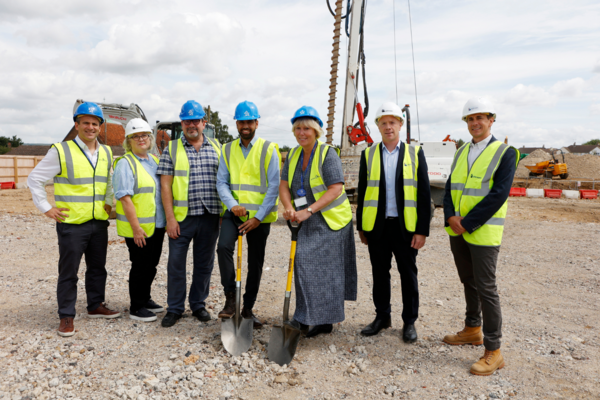What’s Happening with Housing in Maidstone?
An Update from Cllr Simon Wales, Cabinet Member for Housing and Homelessness
Housing is one of the biggest challenges we face in Maidstone. The previous Conservative administration, while recognising the issue, failed to give it the focus and energy it needed. Because of that, thousands of local people have struggled with housing problems for years. Since taking office, the Liberal Democrat–Green–Independent Alliance has made housing a top priority.
When people have secure, affordable homes, they’re healthier, happier, and more able to contribute to their community. Children can learn better, adults can work and volunteer, and everyone has a better chance to thrive. Tackling housing isn’t just about buildings — it’s about improving lives and strengthening our neighbourhoods and local economy.
The Problem: Too Many People Without a Proper Home
Right now, more than 2,000 households are on Maidstone’s housing waiting list. That means they’ve asked the Council for help finding a home — and they all have a real connection to Maidstone.
They’re not all rough sleeping, but many are in very difficult situations:
- Renting privately and paying too much
- Living in overcrowded or unsafe homes
- Sleeping on sofas or sharing cramped space with family
- In temporary housing like B&Bs, sometimes far from Maidstone
This causes huge stress and makes everyday life much harder — especially for families and young people. It affects health, education, work, and relationships. And it holds people back from contributing fully to our community and economy.
Why Don’t We Just Build More Homes?
We are — but it’s not as simple as it sounds.
In the 1980s, Margaret Thatcher’s Conservative government introduced “Right to Buy”, allowing people to buy their council homes. Many families benefitted — but councils were not allowed to use the money raised to build new homes. The aim was to reduce public spending and make people more self-reliant, but the result was a steep drop in the number of affordable homes. We’re still dealing with that shortfall today.
There’s also a challenge with where to build. Private developers prefer “greenfield” land — open fields and farmland — because it’s cheaper and quicker to build on. But we’re trying to protect that land where we can.
Instead, we’re focusing on brownfield sites — places like old factories or shops that are no longer in use. But these sites come with more risks and uncertainties: the ground may be polluted, the land may need extra work before building, and it can take longer to get planning permission. These are big reasons why private developers often avoid them.
That’s where the Council steps in — with funding from the government and Homes England — to unlock these sites and build homes for people who need them.
Where Are New Homes Being Built?
We’re making real progress:
- Maidstone East (old Royal Mail site): 180 homes for social rent, with a park and possibly a GP surgery
- Springfield (old library site): 103 homes in lower-rise blocks for social rent
- Heather House, Corbens Place, and Bathstore site: More council-owned homes for people on our waiting list
Each home gives someone a better future — and helps them give back to our community.
What About Temporary Accommodation?
Over 200 people are in temporary housing, and sometimes they’re placed outside Maidstone. That’s hard on families, schools, and jobs.
We’re also buying and renting homes locally to help people stay near their support networks.
What Else Are We Doing?
- Hiring more housing officers to check on homes and offer energy-saving advice
- Working with housing associations like Golding Homes to renew estates like Cambridge Crescent
- Making sure 40% of new homes on big sites are affordable
- Re-opening the Housing Revenue Account, so housing money stays protected
Building Communities, Not Just Houses
We’re not just building houses — we’re creating communities. That means roads, schools, buses, GPs, green spaces, and more.
By tackling the housing crisis, we help people live better lives — and contribute more to our town and economy. It’s the right thing to do, and we’re proud to be getting on with it.
—
Cllr Simon Wales
Cabinet Member for Housing and Homelessness
Liberal Democrat for Loose and Linton

